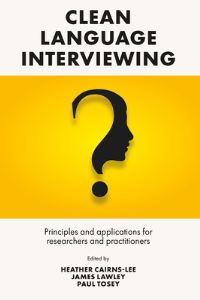Aaron Mays describes a new study which concludes that weight-conscious individuals are likely to believe in “negative calories”, i.e. they believe that adding a side salad to a cheeseburger will lower the total calorie count [1]. But do they really?
The study, conducted by Professor Alexander Chernev, consisted of 934 participants who were asked to estimate the total calories of meals they were shown; some saw relatively unhealthy meals while others saw the same meals combined with a healthy option. For example, a bowl of chili with cheese, or the same bowl of chilli with a small green salad; a cheeseburger alone or with three celery sticks. In all meal-types participants on average estimated the unhealthy plus healthy option had less calories than the unhealthy option alone.
We can disagree about what is ‘healthy’ or not, but adding anything to a meal will always increase the calorific content. That the participant’s estimates ran counter to this law of physics led Chernev to calls the phenomenon “the negative-calorie illusion” which he suggests contributes to their overeating. He says, “People intuitively believe that eating healthy foods in addition to unhealthy ones can decrease a meal’s calorie count”.
A detailed investigation of the results reveals that another interesting pattern:
Dieters were even more likely to fall into the negative-calorie illusion trap. In fact, the illusion was twice as strong for the weight-conscious groups (who on average underestimated the combined meal by 76 calories or 10.8 percent) than for those who were rather indifferent about their weight (who on average underestimated the combined meal by 33 calories or 4.8 percent).
Chernev called this “the dieter’s paradox”. But is it paradoxical? And do people believe in “negative calories”?
I did an informal survey among friends and family and I couldn’t find a single person who believed in ‘negative calories, even though they could appreciate that they might consistently underestimate the calorific content of food. Just because somebody does something, does that mean they must hold an unconscious belief consistent with that behaviour? [2] Consider this. My eyes ‘see’ the sun ‘go down’ even though I know/believe it’s the earth that is moving relative to the sun. Does this mean I have an unconscious belief that the sun moves around the earth? I don’t think so. So what else might be going on?
It seems it’s simpler to think that our neurology is doing what it does, and unlike our knowledge of the sun, at the time we are not aware we are fooling our self. ‘Unconscious beliefs’ seem like a convenient short-hand for an inside-out causal explanation: We believe X therefore we do Y. By reverse logic, if we do Y we must believe X. This is traditional linear thinking from an observer’s perspective that ignores the “circular or more complex chains of causation” (Gregory Bateson) that make up the mind-body-environment system.
There are plenty of examples of humans holding ‘contradictory’ views and doing ‘incompatible’ behaviours. Why does everything about an individual have to fit perfectly together by some external measure of logic or consistency? Why can’t humans be capable of both simultaneous and sequential ‘incongruities’? Everyone I’ve ever met has this capacity. I wonder how much our creativity would be compromised if we didn’t have it.
An alternate explanatory process that Penny Tompkins and I have been investigating for some years is self-deception: The ability of a person to ‘fool themselves’ both in-the-moment and over time.
In this model we all have the ability to act in ways that run counter to what we profess to be our own best interests. Dieters may know that a cheeseburger and salad has more calories than a cheeseburger alone; but wish it didn’t. To act on that knowing would require them to change their behaviour – and eat less – so rather than have to face the consequences of changing their behaviour they find a way to convince themselves otherwise. A dieter may say “one little chocolate cookie won’t matter”, which is true, but the cookie they are eating isn’t “one” but one of many. Maybe Al Gore misses the point when he entitled his documentary An Inconvenient Truth. Much more influential are the ‘convenient truths’ we prefer to believe because it saves us the effort of giving up our car, turning down our heating, recycling our rubbish, or not eating that cheeseburger and fries.
References and notes
1 Original article: ‘The Dieter’s Paradox’ by Aaron Mays Sept 20, 2010 www.kellogg.northwestern.edu/News_Articles/2010/the-dieters-paradox.aspx. The study, “The Dieter’s Paradox,” will appear in the April 2011 issue of the Journal of Consumer Psychology.
2 This explanation is similar to Chris Argyris and Donald Schön’s idea that when what we say and what we do don’t match, we have two sets of beliefs/values: ‘espoused values/beliefs’ and ‘lived or enacted values/beliefs’. But does this explain anything? And once the difference becomes clear, how come we don’t align the two?







